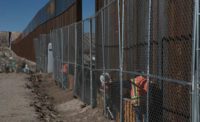While Trump Administration officials clarified on Feb. 1 that a Jan. 27 executive order that had banned U.S. entry for nationals from seven heavily-Muslim countries does not apply to legal residents with green cards, uncertainty on current and potential longer-term restrictions on visas and immigration will have "a significant potential impact" on colleges of engineering and engineering technology, said their major professional association.
In a Feb. 1 statement, the American Society for Engineering Education, said "the majority of engineering graduate students are foreign born, as are a significant number of undergraduates and faculty."
It said the order originally banning U.S. entry for visa and green card holders from seven countries (Iran, Iraq, Yemen, Somalia, Sudan, Libya and Syria) had potential impact to "thousands of engineering and engineering technology students and faculty members [in] continuing their education and/or research in a timely and reasonable manner, and this does not address, of course, the personal hardship and anxiety they are facing."
ASEE members include about 400 colleges and universities; 12,000 academic, corporate and government members; 50 companies and other government agencies and entities.
"ASEE member institutions are greatly enriched by the talent, intelligence, work ethic, and diversity of thought that international faculty and students bring to their campuses," said the group. "Many of these students stay in the U.S. after graduation and contribute to the economy, sometimes starting tech-based businesses or impacting entire industries."
In its statement, the group urged that tightened security "minimize disruption" to those who teach, practice, and study engineering and engineering technology in the U.S. and emphasized that "beyond any immediate negative impact, the creation of an atmosphere of uncertainty for international faculty and students may have a dampening impact on our nation’s ability to attract the best talent."




